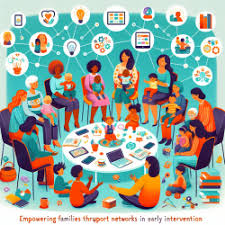The International Classification of Functioning, Disability and Health for Children and Youth (ICF-CY) provides a comprehensive framework for understanding and addressing the multifaceted aspects of health and disability in children. A recent study, "Using the International Classification of Functioning, Disability and Health (ICF) to Describe Children Referred to Special Care or Paediatric Dental Services," offers valuable insights that can be leveraged by practitioners to improve pediatric oral health outcomes.
This study, involving 218 children from France, Sweden, Argentina, and Ireland, utilized the ICF-CY to assess various domains of health, including body functions, activities, participation, and environmental factors. The results underscore the importance of adopting a holistic approach to pediatric oral health, moving beyond traditional medical diagnoses to consider the child's functional capacity and social context.
Key Findings and Practical Applications
Here are some critical findings from the study and their practical applications for practitioners:
- Intellectual and Cognitive Functions: The study found that intellectual functions, high-level cognitive functions, and attention functions were frequently impaired. Practitioners should develop tailored interventions that accommodate these cognitive limitations, such as using visual aids and simplified instructions during dental visits.
- Participation Restrictions: Children often faced restrictions in activities such as handling stress, caring for body parts, and speaking. To address these issues, interdisciplinary collaboration with speech-language pathologists and occupational therapists can be beneficial. For instance, integrating stress management techniques and oral hygiene routines into therapy sessions can improve overall participation.
- Environmental Facilitators: The support and attitudes of friends, family, and health professionals were significant facilitators. Practitioners should engage caregivers and peers in the child's oral health care plan, fostering a supportive environment that encourages positive health behaviors.
- Societal Attitudes: Societal attitudes were identified as a barrier in over 50% of cases. Advocacy for inclusive policies and community education can help mitigate these barriers, promoting a more accepting and supportive environment for children with disabilities.
Encouraging Further Research
While this study provides a robust framework, it also highlights the need for further research to develop an ICF-CY Core Set for Oral Health. Practitioners are encouraged to participate in or initiate studies that explore the functional, social, and environmental contexts of children in different settings. This will help refine the ICF-CY Core Set, making it a practical tool for clinical and epidemiological use.
By adopting the ICF-CY framework and contributing to ongoing research, practitioners can play a pivotal role in enhancing pediatric oral health outcomes. This holistic approach not only addresses the medical aspects of oral health but also considers the broader determinants that influence a child's well-being.
To read the original research paper, please follow this link: Using the International Classification of Functioning, Disability and Health (ICF) to Describe Children Referred to Special Care or Paediatric Dental Services.










